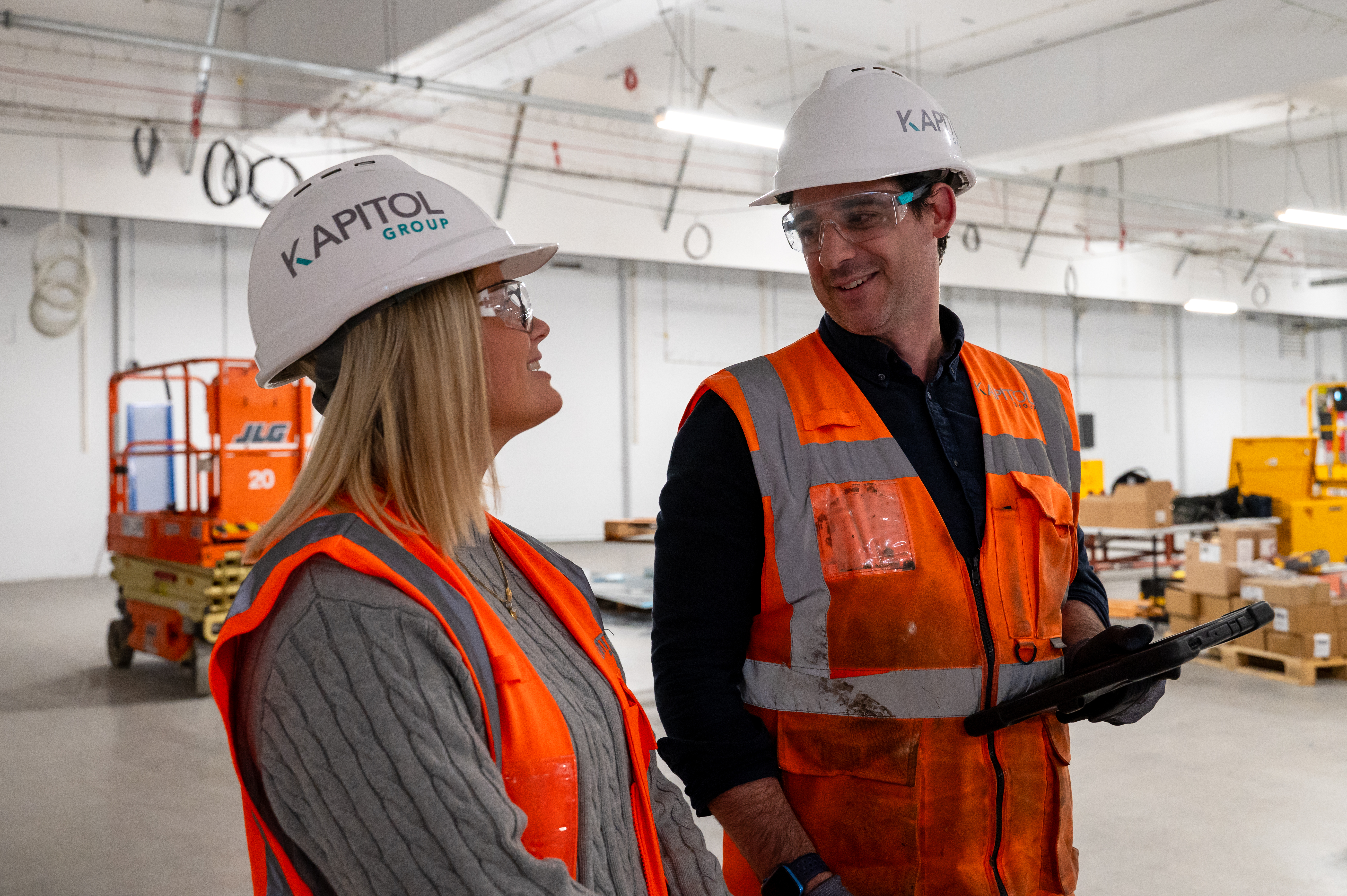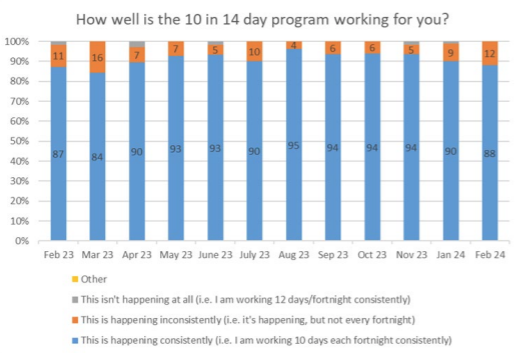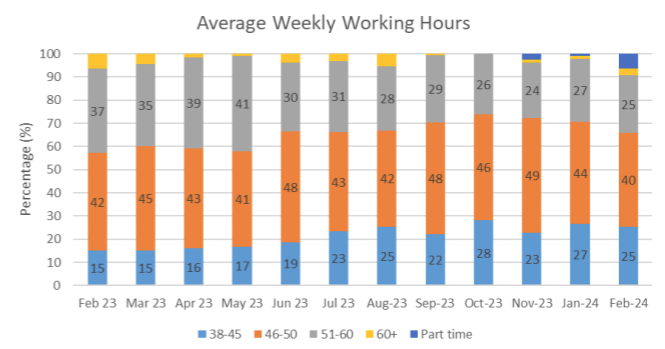
Share this story
Opinion - by Alice Hanna , Kapitol Group Head of People & Culture
I read an article in the AFR recently (link) stating that one of the most impactful actions we can take to close the gender pay gap in construction is to move the industry to a 5-day working week. I wholeheartedly agree. Here’s the thing though – we don’t need to wait for the EBA or the industry to change this for us. As construction companies, we can do this ourselves right now. In fact, Kapitol Group already are. On every single one of our projects, all roles except our Site Managers and Site Supervisors work a 5-day week, Monday to Friday. Our Site Managers and Supervisors work every second Saturday and 10 days per fortnight, not 11 or 12 days (we call this our ’10 in 14 Program’).
Here’s how we do it at Kapitol
Smart programming and efficient systems and process
- As construction companies, we manage our own programmes. We have the power. At Kapitol, our programmes are designed to ensure that minimal work occurs on a Saturday, requiring only the Site Manager and/or Supervisor to work.
- This takes both good planning and efficient systems and processes so the bulk of the work can be done Monday to Friday without overloading staff during the week.
- This allows all other site-based roles to only work Monday to Friday (Project Coordinators, Services Managers, Design Managers etc).
Investment in a pool of trained temporary supervisors
- For additional support or to stand in for one of our Site Managers who is rostered off on any particular day, we have a pool of casual and labour hire supervisors trained in our systems and processes.
- This allows our Site Managers/Supervisors to have every second Saturday off. They also get a weekday off in the week they do work a Saturday, to ensure they only work 10 days each fortnight.
Commitment
- It’s hard. I won’t lie. We have a constant battle to ensure this happens week-in-week out. We don’t take the spotlight off this.
- It is also expensive. To pay for casual and day rate labour hire supervisors is not cheap – we spend circa $1m per year on this. BUT it saves us money in the long run on turnover, attraction, retention and less errors and safety incidents caused by fatigue. It takes a committed leadership team to understand that by doing this, we spend money to save money.
- Results of our monthly work hours survey are shared with the whole business each month during our company 'all hands' meeting, with each Project Manager taken through their monthly data and held accountable when their team’s days or hours don’t meet our targets.
Here’s the result
Every month we survey our staff and ask for their honest feedback. Across the past 6 months, 95% of our Site Managers and Site Supervisors have reported that their 10 day a fortnight roster is working 100% of the time. We’re working on the last 5%.

Across the past 6 months, 69% of our staff have reported they are working under a 50 hour week. That may seem high to any other industry, but in construction it’s ground breaking (pardon the pun) and again, we're working hard to get that number higher.

Here’s what one of our Site Supervisors has said about 10 in 14: “I believe the 10 in 14 is great. I’m really enjoying more of a work life balance moving to this company, as my past company was very different. I’m enjoying spending more time with my family. It definitely keeps you more refreshed for the hours you are at work and you don’t feel as run down. Definitely a big positive for me thus far.”
Do we need to change the structure of the industry and EBA to legislate a 5 day week? Yes, absolutely. Will this happen immediately? No, for many complex reasons.
That doesn’t mean we can’t act ourselves. If every construction company did the above, we would:
- Attract and retain more women
- Allow more working parents to have a successful career in construction
- See more women move through to senior roles in construction as they’re staying in the industry long term
- Start to close the gender pay gap.
Don’t wait for systemic change. You have the power to change your own backyard now.
Latest News

Reducing Construction Risk with VDC
Discover how VDC transforms construction—reducing risk, cutting rework, and saving time. Insights from Kapitol, Neoscape & Architectus

Introducing Kapitol’s Five-Part Series About Productivity in Construction
At Kapitol, productivity is a key issue that informs our work, culture, and commitment to innovation.

Laser Scanning - Building with Precision
Harnessing the power of cutting-edge laser-scanning technology, a game-changer for efficiency and accuracy in the construction industry.
